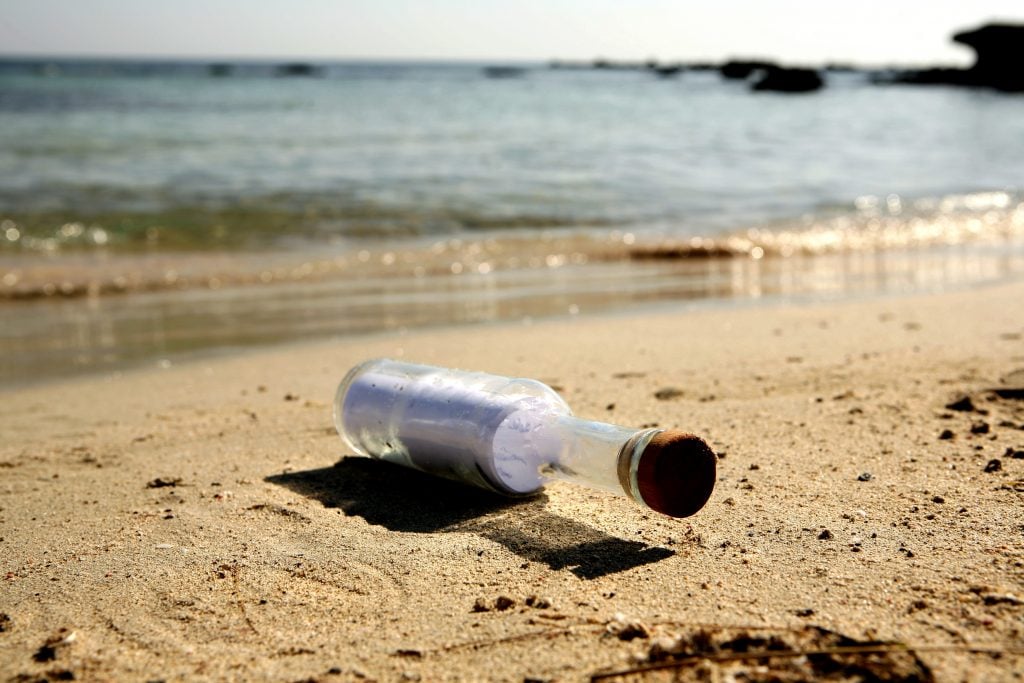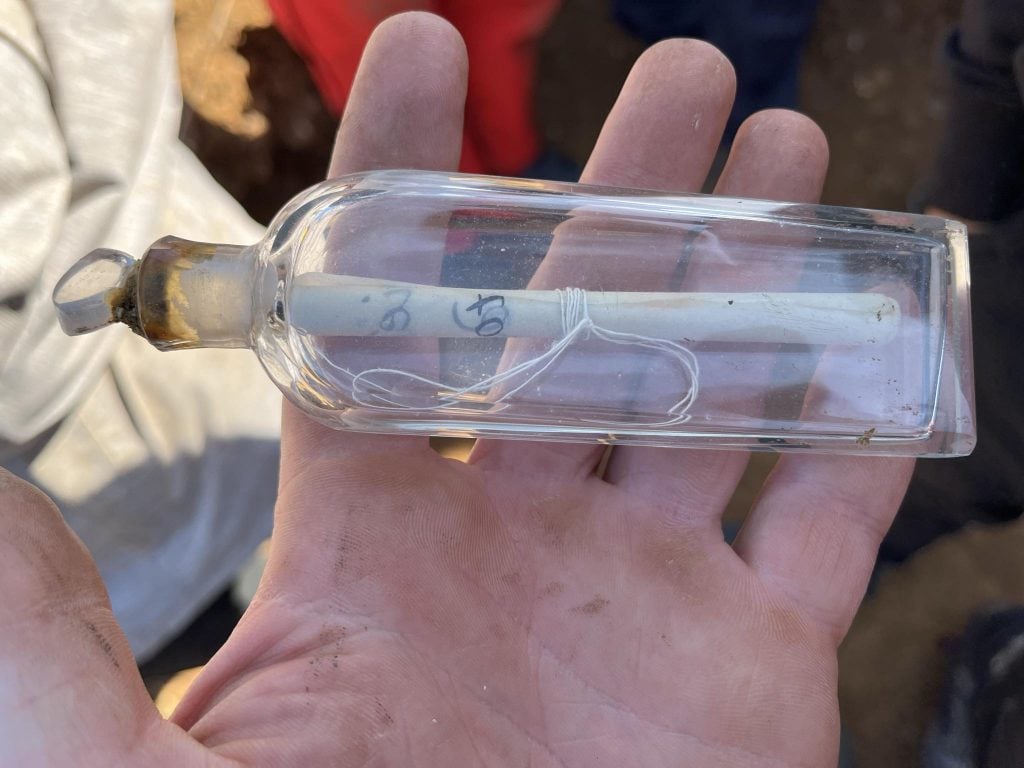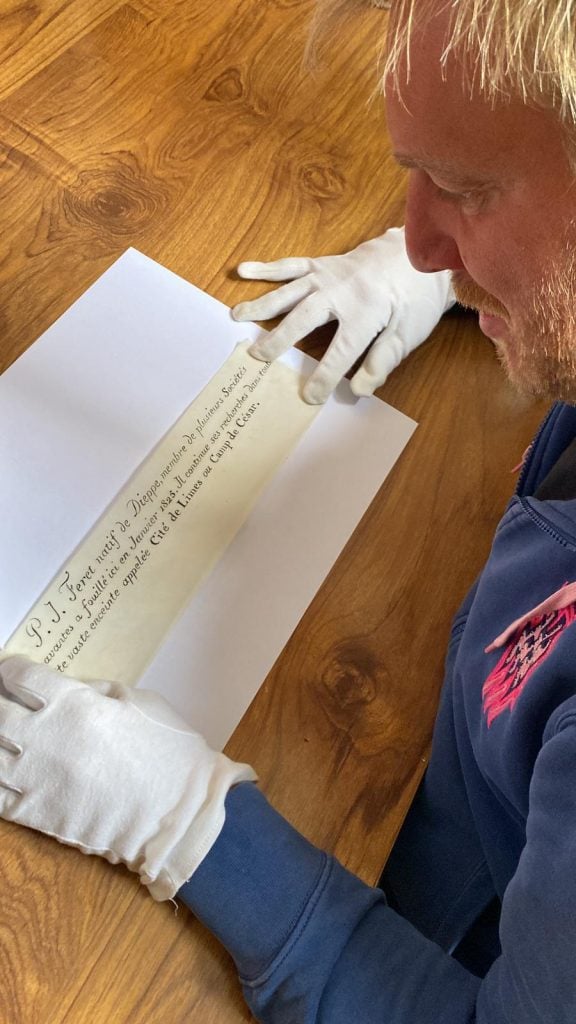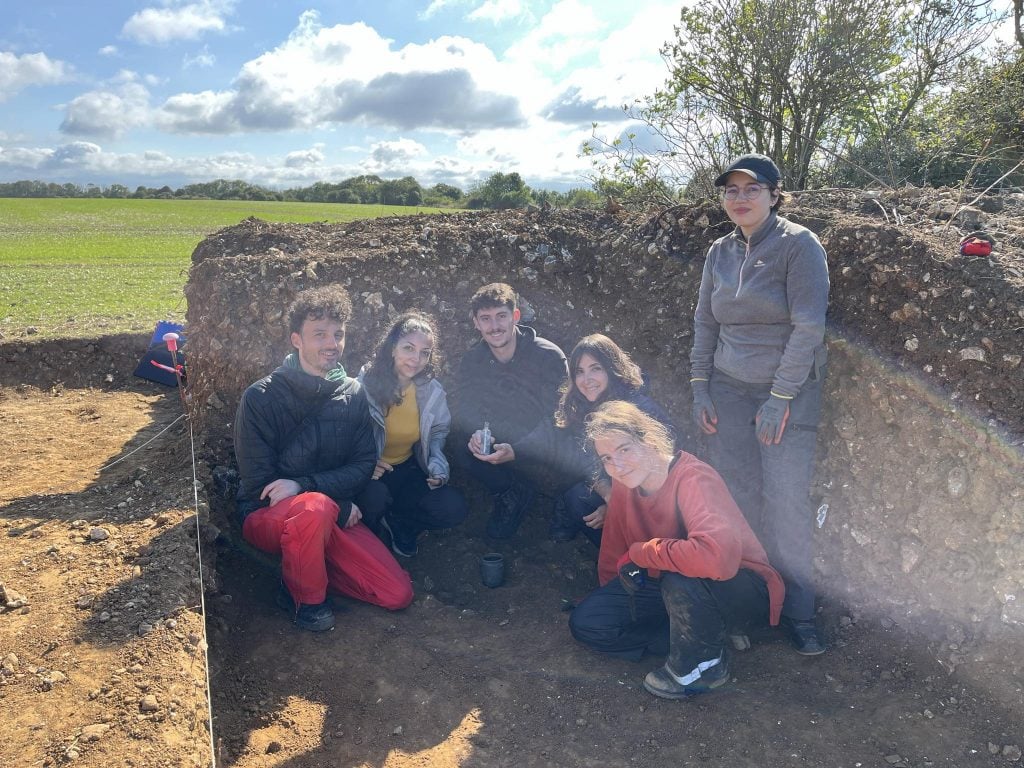Archaeology & History
An Archaeologist’s 200-Year-Old Message in a Bottle Resurfaces on French Coast
The message was left by a 19th-century archaeologist excavating the area.

A group of volunteer archaeologists excavating the remnants of a Gallic site on the north coast of France has discovered a 200-year-old message from a previous archaeologist.
In recent years there has been renewed urgency to excavate the 2,000-year-old site, which sits on the cliffs near the port city of Dieppe, Normandy, on account of coastal erosion. While the students did find numerous Gallic artifacts, including ancient shards of pottery, the most surprising discovery was much more recent and arrived in a small glass vial that had been placed inside a clay pot.

The 19th-century vial was found by a team of volunteer archaeologists. Photo: courtesy Guillaume Blondel.
The message inside the vial read: “P.J Féret, a native of Dieppe, a member of various intellectual societies, carried out excavations here in January, 1825. He continues his investigations in this vast area known as the City of Limes or Caesar’s Camp.”
Guillaume Blondel, who leads the excavation and works for the nearby town of Eu as an archeologist, described the discovery as magical. “These excavations have yielded a very moving and particular testimony,” Blondel said via email. “This time capsule was left in a sector that has been excavated for a long time and is now being threatened by the retreat of the coastline.”

Guillaume Blondel reads the note left by a previous archaeologist at the Gallic site. Photo: courtesy Guillaume Blondel.
The vial, the likes of which women in the 19th century filled with smelling salts and wore around their necks, was accompanied by two coins. Blondel said excavation, which is funded by the national Regional Archaeology Service, remains ongoing.

The team of student archaeologists found a 200-year-old message at a site outside of Dieppe, Normandy. Photo: courtesy Guillaume Blondel.
Pierre-Jacques Féret was a notable resident of the area in the 19th-century and continued a tradition of excavating the site that dated back to the early 18th-century. Féret created some of the first accurate topographical maps of the site and uncovered evidence that it had been a fortified Gallic town before later being used by the Romans.
The names for the site offered by Féret, the City of Limes or Caesar’s Camp, continue to be used interchangeable. It’s believed Caesar’s Camp was the name given by Louis XIII while on a fishing trip in the area in 1617.





